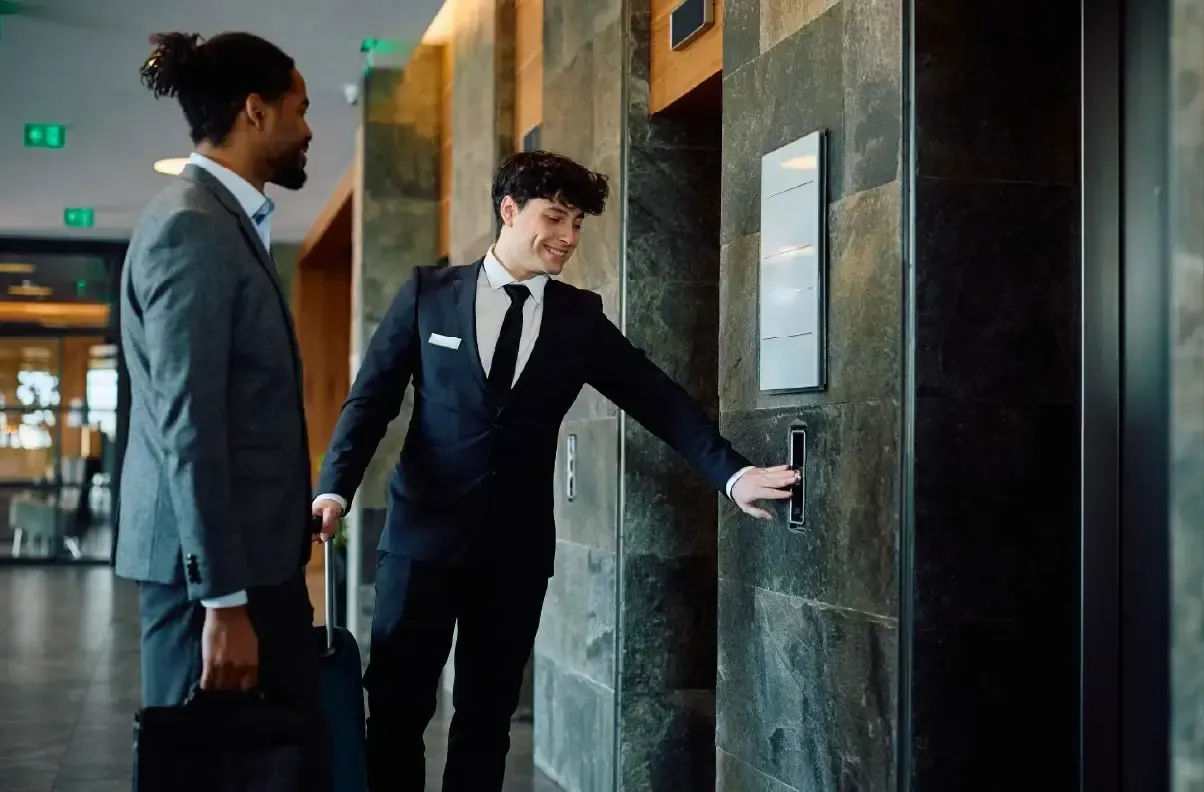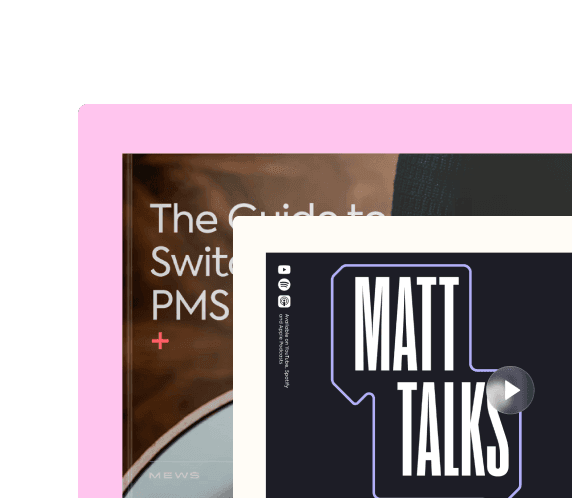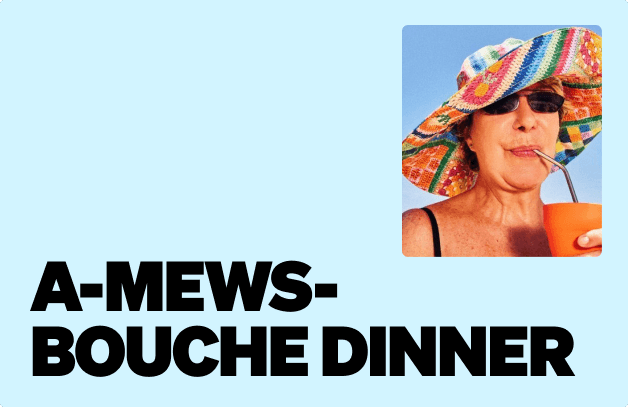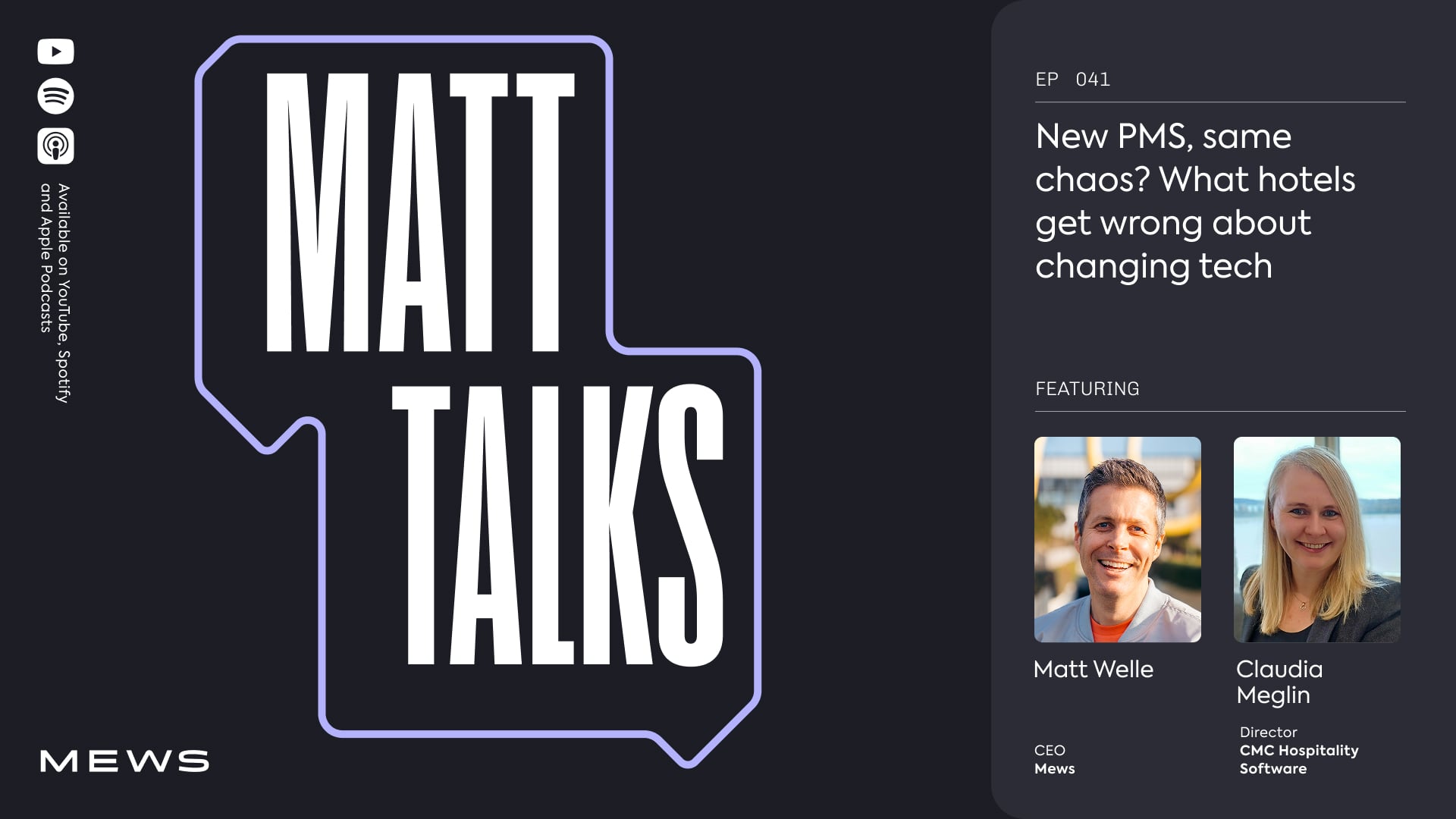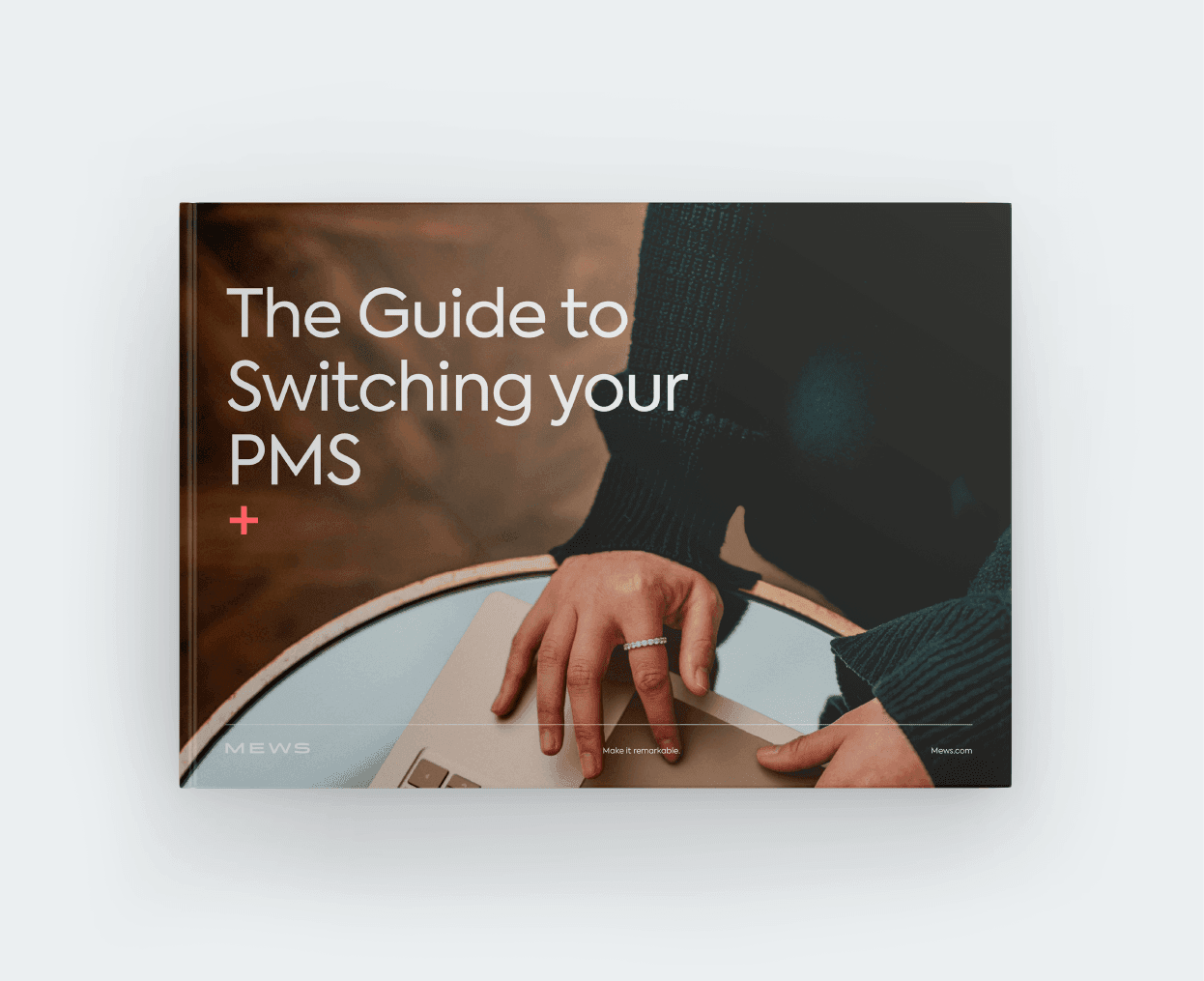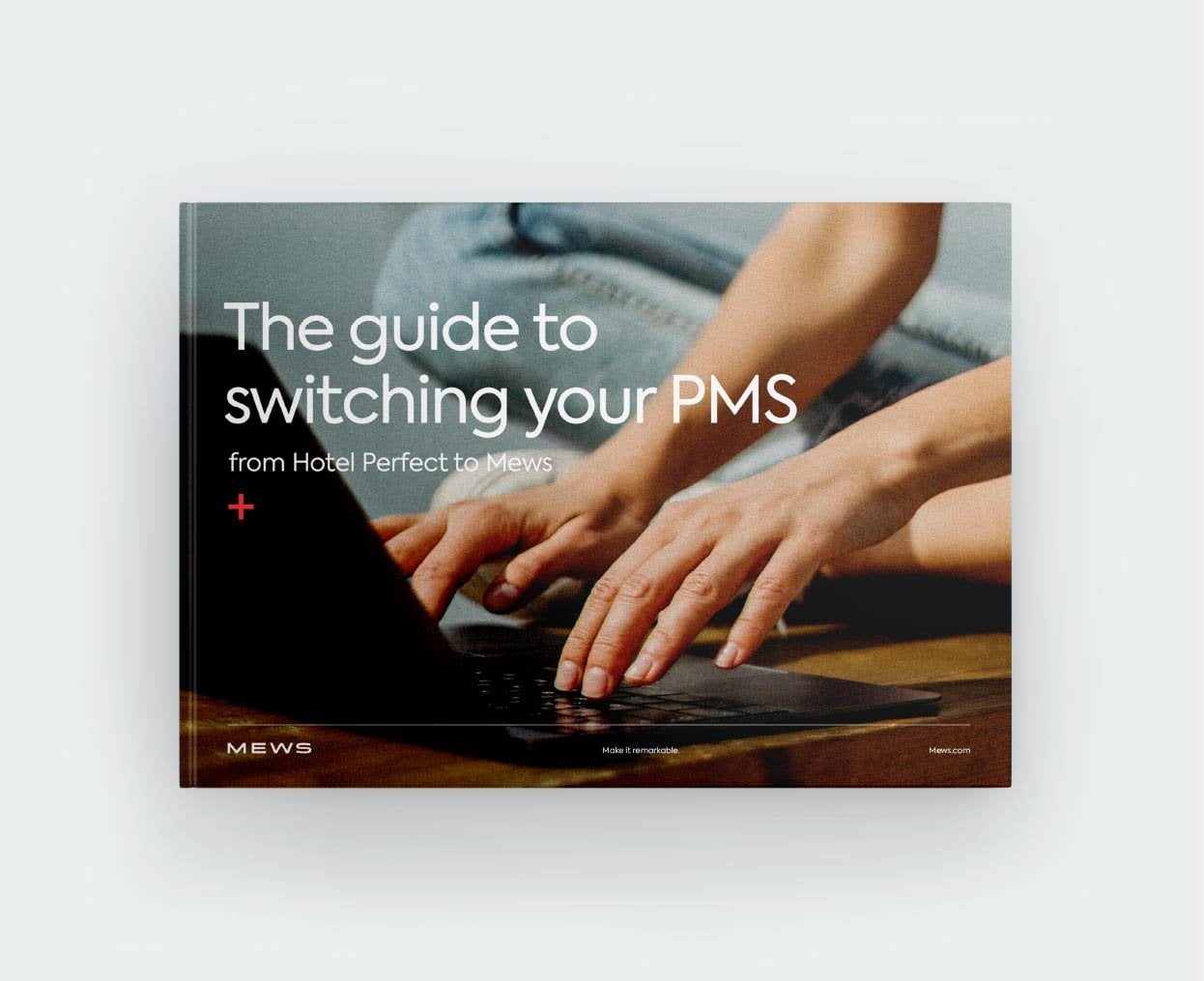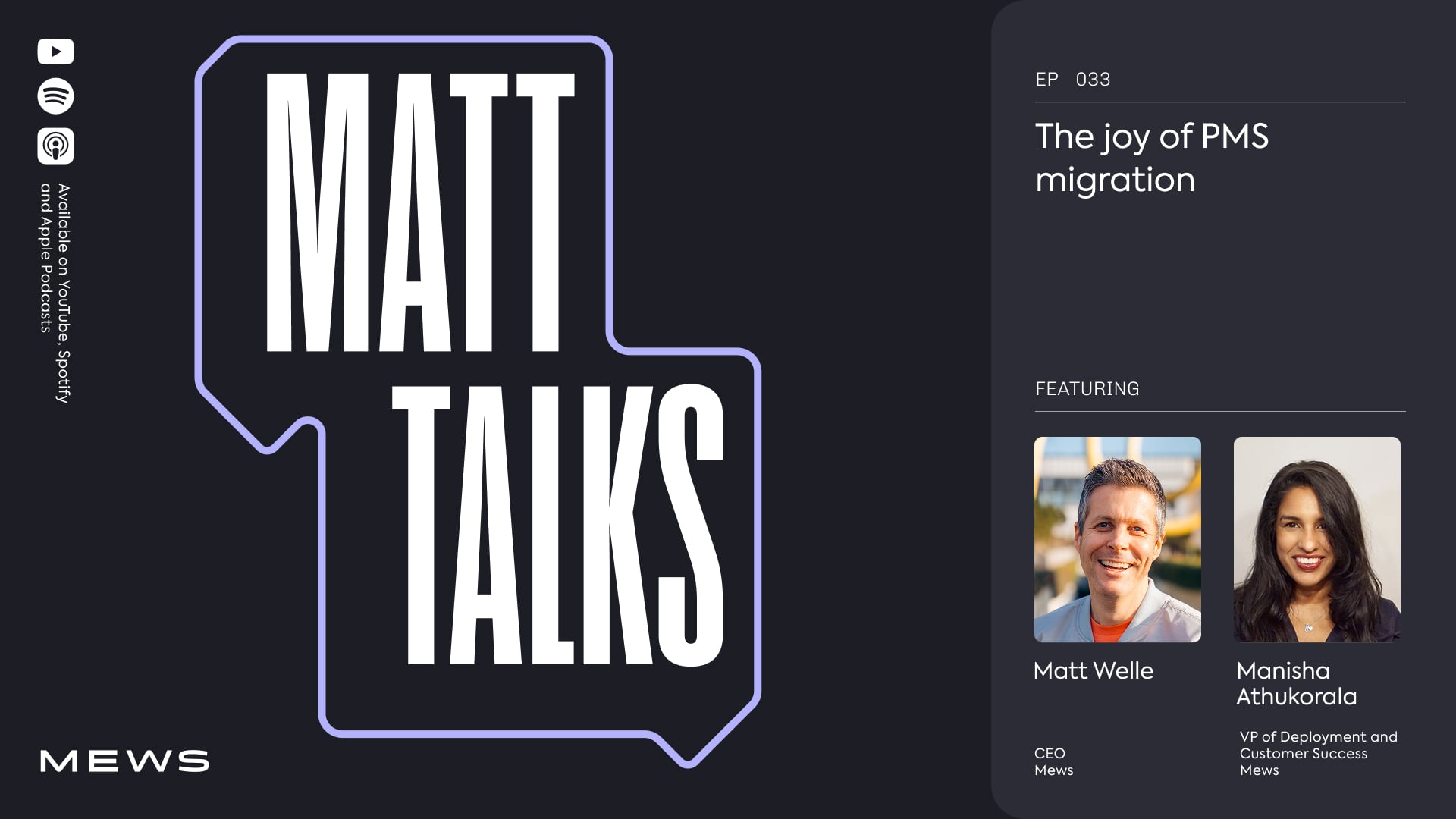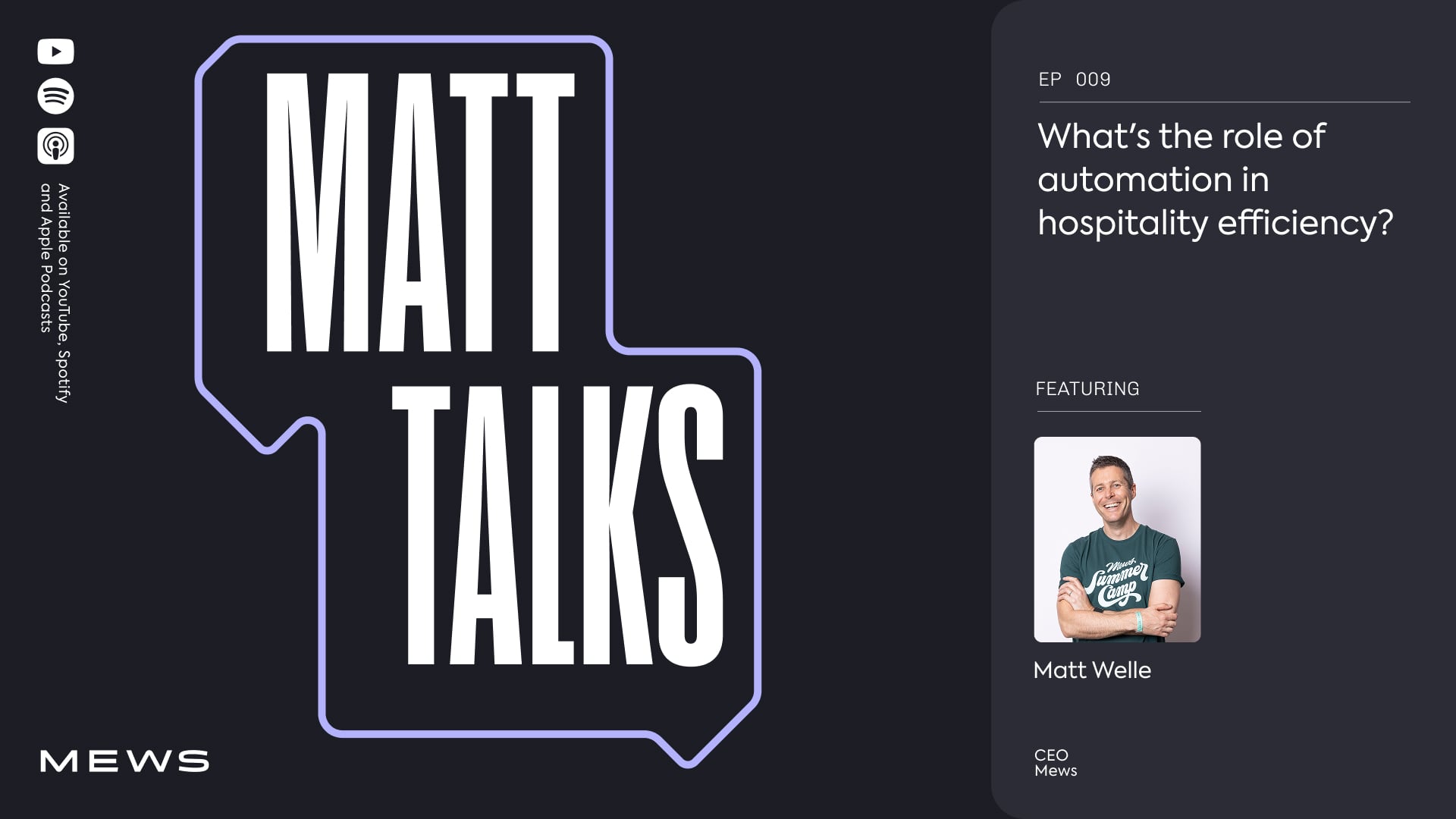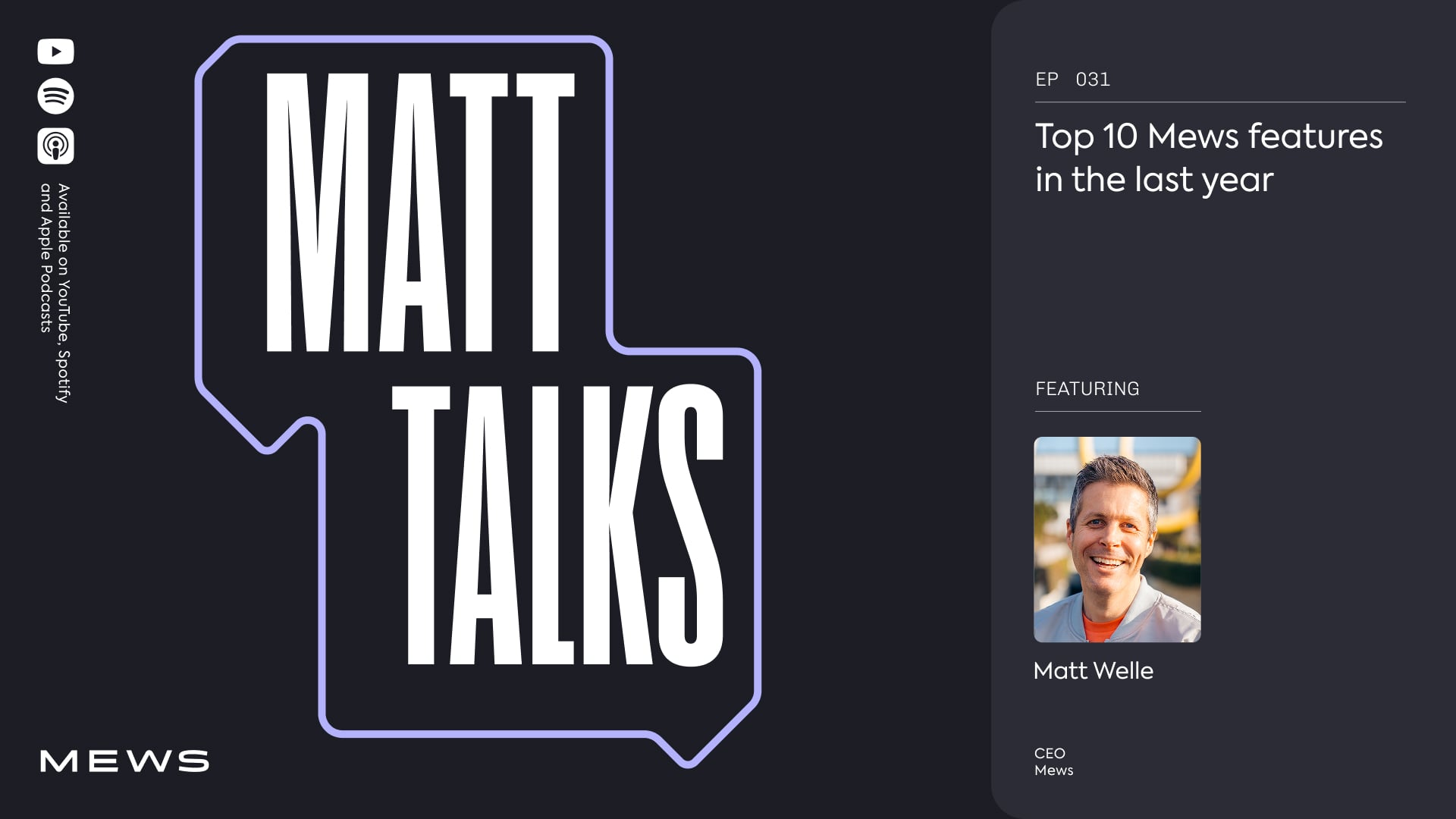What to expect?
Meet your speakers

Matthijs Welle
CEO, Mews
After years in the trenches of hospitality, Matt joined the Mews journey during its early days in 2013. Since then, he’s been our fearless CEO, leading the company and the industry forward.
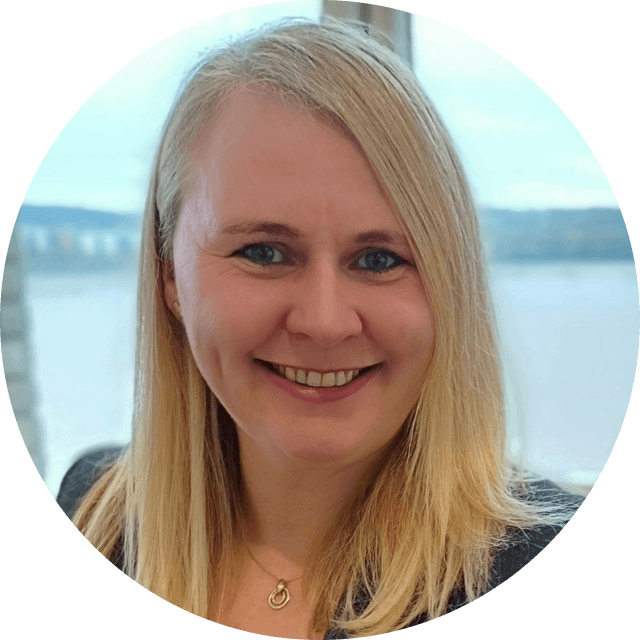
Claudia Meglin
Director, CMC Hospitality Software
Claudia's been involved in global tech implementations for brands like Penta Hotels, Generator and Freehand Hotels. Now she helps hotels get serious about PMS strategy, implementation and integration.
Episode chapters
Transcript
Introduction
Hi, everyone. Welcome back to another Matt Talks. And today I have one of my favorite hoteliers on this call, Claudia Meglin, who I met, I think it's 2017, 2016. I was looking back to when we met and I remember the moments when we met. But before we go there, do you want to maybe just introduce yourself and what's your background in hospitality?
Yeah, I always had the decision to make if I want to be a physiotherapist or if I go in hospitality industry. Please don't ask me why. So I'm coming from countryside in Bavaria, Bavarian Forest, very beautiful area. And we had like a lot of local hotels and my dad always pictured me like in a traditional dirndl behind one of these reception desks.
But in my head, I more had like, I want to see the world. I want to go into business hospitality. So I was very lucky. I got an apprenticeship in Germany.
You do this apprenticeship like three year study school and specific to Germany, right?
Those two apprenticeships.
But I love that because it's practical and you have the school. So we've been four days a week we were working and then one day a week we've been to school. So you learn hospitality from the get-go. And I got a place at IHG Holiday Inn in Passau, which is like border to Austria.
And I've been super lucky because I had a great apprenticeship there. I've been in every department. I've been in the kitchen. I've been dishwasher.
I've been in the restaurant, obviously. So I've been in a lot of places, even in maintenance. I painted chairs. So I think this is what is a little bit missing, like really learning hospitality from the get-go.
Chapter
Claudia Meglin's journey in hospitality
Then over the time I did all of these hotel openings as a front office manager and then these people from the software, mainly Opera, they came and they told me how to configure my software. And then they went to the restaurant in the evening on our expenses and then they went out and explored the city. I was like, this is an amazing job. I want to do this.
So I applied with MICROS-FIDELIO a while ago and then I had to go on a bootcamp and learn SQL database language, which I never understood why I had to do this until everything made sense, building reports and stuff like that. But I think this is still the basis nowadays, which made me understand technology a little bit better and how a hospitality software works. And then I just had a journey installing like Penta Hotels as a lead installer for MICROS-FIDELIO, the very old days. Then I switched sides, went to Penta Hotels.
They gave me a really great chance and they made this position as a PMS manager. So I was taking care of the implementation internally within Penta Hotels to roll out all of the hotels they had. They had a lot of new ones coming up. That was, by the way, the time when we met on our very when we just had a little roll-up stand on an exhibition.
It was so poor.
Like we were we had no money and we were in this hostel stand like we were sub-leasing our stand from I think it's Wise like this hostel or something. But you found us in this hole in the middle of nowhere on ITB.
Yeah, exactly. And then we had, I think, one of the most amazing meetings I have had because most of the time we were just laughing. It was really great. And then I followed Mews obviously along the journey, after we all moved to a Generator, to London.
And this is where I made like a lot of connections, a lot of new people. And this is where we then decided maybe we get Mews ago. And this is long time ago, like eight years, I think we installed the first generator hotel with Mews. Yeah, and then from there I moved on.
Because right now you are no longer in hotels. You've stepped away from an operator role. What is it that you do today?
So during Covid, there was a lot of times that all the people that moved into different places and they reached out and say, hey, Claudia, I need help. We have a problem here with our software. We have a problem there. Can you help us?
And then at a certain stage, realized maybe that might be a really great idea to go into the consultancy business. With Generator, we set up everything. We rolled out Mews in America with the freehand property. So we did it all.
We implemented everything that was possible by that time. So for me, like going into consultant at a hospitality organization is super interesting because you learn so much more different organization. I've had I think the funniest or the funkiest Mews installation I ever had was a villa in St Barts with just one room. Amazing villa.
And they had Mews and they needed some help, like how to configure it. And they were so specific on their needs that I really had to break my head on how we're going to make that work. And yeah, this is what is, I think, the most interesting currently on my job, like going into this different organization. So I help them when they say, Okay, we want to have a new software, but we don't know even where to start.
Chapter
Understanding hotel needs
And this is where I basically sit down with them and say, Okay, what do you want? What do you want to achieve? Why you want to change your software? And then starting to, you know, build an ecosystem around it.
Because I think one of the biggest misconceptions nowadays is I want to switch my PMS. So I just take what I have now and I put in a new one and all the rest. And I not only have news clients, I do have one of my biggest client and supporter who also encouraged me a lot to do my own business. And I'm thankful to him till today is Andre Guettouche.
He has his own company now at Step Partners and they're doing a lot of franchise hotels, which is just another really, really interesting part when it comes to software, because you have a core, you have Marriott, you have IHG. They all operate differently.
Chapter
The problem with franchise hotels
Franchise organization, you want to kind of have reporting overall. And this is another challenge where I
Yeah, trying to help to make the best out of what we can do because the hands are quite tight to what is it about that space of the PMS world that attracts you?
Because most people, when they hear PMS, they run-in the opposite direction because it means complexity. But you're drawn to it in some way. Like, what is it that you love about it?
The interesting point of this, like tweaking the same PMS system to different organizations. Right. This is what as a software implementation specialist or an onboarding manager, you need to make sure that this piece of software, which is made for one type of hospitality, maybe fits for another one. So this is where we spend a lot of work in the beginning with Generator, right, to make it work for that organization.
And all the time it's about also learning the operation of that specific hotel, because so many different types, apartment hotels, they're all trying to do something a little bit different. So what tricks me is to make it happen and to fix the problem, to make it the best work for their organization and to also find the right fit, not only for the PMS, but also all of the ecosystem around it. Because it's not only the PMS, it's also like anything that is integrating what works best, what works for this organization. I think this is the most trickiest part and most of the people are overwhelmed with possibilities they have.
So as a consultant, are you agnostic or do you have opinions? Because it's often the thing where you want to, as a consultant, be considered as objective. But surely you see good tech and you see bad tech. Like, how much of an opinion do you have on the tech stack?
I think it depends a little bit because, as I said, sometimes your hands are tied. If you're like with a franchise.
Yeah, you're being told this is the system and you're going to like This is where you don't have really much possibilities, but you're still trying to find a way around it or something that makes it work for that organization.
Most of the time, customers already like a strong opinion or they're starting a pitch and they say, okay, we have three different PMS softwares. And then they ask me, what do you think is the best? And then I'm asking, what do you want to achieve? Or what kind of hotel are you?
Maybe Mews is not the perfect fit for every hotel. Still others, if you have a very complex packaging rate system that might be a bit challenging with Mews. So sometimes this is why it might make sense to go with another provider. But most of them, they already have something in their mind and say, Okay, I have these three opportunities.
What is your opinion? And then I say, Okay, you will have a benefit with that and you will have a benefit with that and you will have a benefit with that. And then I leave them the choice to say, what are the higher priorities and what is more important for them?
The PMS touches every part of hotel operation. What are the telltale signs? Like what are the areas that you will dive into to understand whether they're on the right track?
Most of the time, what they are looking for at the moment is integrations, easy integrations.
So they're looking for guest experience. What can they do different to other hotels who all have a place to sleep, but how you can make the difference. So the guest experience, I think, is the most important part. And then we also have to recognize that hotels are still a lot on the legacy system. So they basically for most of the times, and I think that was the most surprising part for me going into different organizations. There is a lot of Excel sheets and a lot of manual work where, you know, you're trying to find a good software solution for them.
Guest experience online check-in online check-out is such a big thing because a lot of hotel organizations still don't have that. And this is where they're trying to seek help because of the problem all hotels have at the moment, which is missing stuff. Right.
So you said a lot of the hotel industry runs on legacy software still today.
Are you finding there's the trigger for them to decide we actually need to change the PMS? Are there a specific set of reasons why they're choosing that path?
Yeah, most of the time they really say we would like to grow in a more technology way, more in that, you know, online check-in, online check-out. They're trying to find solutions to make their hotel operations lighter. This is majority of the time when I talk to them and I ask, okay, but why do you want to change? They say the legacy systems, most of them, they don't have like a future planning.
Chapter
Real-life example: AMANO hotel
So one of the clients we did just a rollout with AMANO Hotel, which is like a really, really great rollout plan. They've been super, super brave and they started with the point of we just want to change our PMS system and then we ended up now to rip off everything. And when I say everything, like literally on the go live days, they rip off the reception like they rip off the reception. They just build kiosks and then this is the way to go, which is like a really brave approach.
But they are extremely brave in what they want to achieve. So they are very clear in their perspective of what they want to achieve. And then we built for months, really like made a lot of flow charts and a lot of different ways, like what can work together. And then, you know, as I said, it's overwhelming what kind of software you have on the market.
It's very tough to find the right fit for the organization because everybody does a little bit of this and everybody does a little bit of that. So I think this is where you really need to sit down and make a clear plan what you're trying to achieve. Sit down and really draw it and say, Okay, what would be the best fit? And a lot of organizations nowadays, they're also thinking of they don't want to have too much software.
They want to have more like in one hand in situations where you have a lot of functionalities within the PMS already. So you don't need to have a lot of external systems because that always means switching software. That always means like having integrations with different partners that sometimes might be a bit overwhelming, especially for very, very small organizations. And then, you know, they could have a choice from different software who do offer that or they decide to, you know, go maybe a bit advanced and or choose Mews because one of the benefits you guys have is obviously your API in your marketplace, which is so large that you can easily even switch your integrations with any other provider.
Yeah.
You've seen probably more PMS change as well. I've probably seen more with our company, but like I haven't done them myself and you've actually done a lot of the migrations of PMSs. Have you got any horror stories that you can share about where it went wrong? Because I think a lot of the fear that hoteliers have is the potential of it going wrong. And how do you then correct for that?
So far, I have to admit we only had one integration which went horribly wrong, which was the first one eight years ago with Mews in Hamburg for January. So that was just I think we haven't been prepared for the reservation import well enough. That's the most critical point, I would say. You can be super, super prepared and have all your integrations set up.
I think the most tricky part is really reservation migration. So how do I get my reservations from my old system into my new system with ideally as little manual effort as possible? And by that time, it's a long time ago, there were not many possibilities to push reservations from one side to the other. So we had to migrate and then you're always a little bit limited from which software you're coming.
How good is the data you get off that software that you can migrate it into another PMS? And I think that was the one which really horrible went wrong. The other one I have to say, we've never came to that stage again. So there is always some installations which are a bit tricky and most of it really comes with the reservation import.
So that's the really crucial part because imagine you push 3500 reservations and all of them have the wrong price in the booking. That could be really tricky. So there I'm trying to pilot make integrations into the demo environment, trying to be prepared as much as you can, especially hotels or cities where you have city tax always a pain.
Hamburg is the worst.
I have no idea who came up with that city tax, but someone in a corporate job that has no idea about hotels.
Like, I think a three star hotel should pay a flat fee that's different than a four star hotel. Don't like it makes no sense.
But like, yeah, and that took us a while that we you know, got it in that specific installation.
So the city tax was basically thrown off the most. But in the end, we imported all reservations, but we had to update the price manually. Nowadays, this is different. Right nowadays you have possibilities with channel managers to push.
At the moment, we're pushing for that rollout. We are pushing a lot of reservations through the channel managers from one side to the other. But it's not something you can take for granted that, oh, you just give them a call and that works. That really implements to how can we do this?
Chapter
Hotels don't need 150 rates
How do we need to prepare our rate structure? Because most of the time what the organisations want to do when they switch a software, they also want to clear up their rate structure. They want to redesign it. They want to make it a bit more dynamic or a bit more lighter most of the time, because a lot of times I come to an organization, they have hundreds of hundreds of rate and it's like, oh, God, why do you need them all?
So always need it.
That question is so hard to have a real conversation because the revenue manager's office is like, well, we need them because people book them and then you have to prove them that actually there's no bookings against those rates and we need to clean them up. But it's such a pain to clean those up.
Yeah, that's I think a lot of those comes,
and that's also part what I'm always trying to explain when I have the first conversations with new customers and they're thinking of changing. I ask them, Okay, what you want to do with your rate structure. What happens a lot is an old thinking of your old PMS and how that PMS work. And that is then getting replicated into the new PMS because the knowledge of the new system is not so well in that stage.
Obviously, you haven't worked with it. You haven't seen it most of the time. And that's why I think it's really important to sit down with the customer. And that's what we do most of the time.
Sitting down and saying, Okay, this is what you have currently and this is how it will work in your new system. And then you explain why you don't need to have 150 different rates. And a lot of times that also comes with a rethinking of your sales strategy. And yeah, that's what we mainly do to consult in that time period and really sit down and say, what do you want to achieve?
And where can we take that to prevent the situation that you just take all of your 140 rates and create it in your new software where it's not really necessary and you could have a much lighter setup.
Chapter
What makes a PMS deployment successful
So if you think that was one deployment gone badly, but what's the perfect deployment look like from that first meeting when you walk in the door to them saying, we're looking to change to PMS, like what's the timeline? What are the steps that like the critical steps to a successful deployment?
I think the most critical part is really to have a proper project management, because changing PMS, as I said, is not only changing one software to another, which comes with a lot of rethinking of your processes. It's about understand how your new software works. First of all, so what can you achieve and which steps need to be taken in part of configuration to bring you to a successful software in the end. And the second part is really the project management and communication internally.
I think there have been a lot of pushbacks from people to change and they are not understanding why an organization is doing something. So I'm talking about the receptionist might not understand why they have to learn a new software now, because for them, they could check in, they can check out, they can issue an invoice. Everything is all right. So what is crucial in a proper rollout is really communication top down, like the people who made the decision to communicate that down to their team.
Why are we doing this change? So we would like to get lighter. We would like to help you in your daily operations and make it lighter and, you know, put in more automation so they don't have to have so much effort on their daily basis and really communicate why you're planning this change to take them on board, take them on the journey. And then something which I find most of the time when you then go into the hotel and you do the implementation to really in advance explain them what would happen on the go live date because they are very scared of, oh my God, what's going to happen?
So really like physically, right?
Explaining what will happen throughout that day.
Yeah. So what we've done for this AMANO rollout, we've done like a kickoff call with every hotel in advance. And then I was writing like a storyboard and I've told them this is what I've done in a lot of other installations. As I said, like my client with these franchise hotels, when they are taking over or have been acquired, we go in and we give them like a plan and say, this is our storyboard.
So this is what we will do on that day. This is how we take over your balances. This is what you need to clean up before we come in, because that's also a very crucial point. Clean up all your ledgers.
No mess. No old accounts. So clean up everything. Explain them step by step. This is when we push the reservation.
This is when we close your sales. This is when we will take over your ledgers from AR or accounts receivable ledger or guest ledger. So really being very precise and explain them. This is what happens and where you need their resources.
So really tell you. But every reservation import can be as perfect as it is. There's always more bits and pieces you can't take over due to limitations of systems. So there might be little tasks that are still manual.
So make it very clear to them, Okay, there is like, let's say, or traces. They can't be migrated from one system to the other. So you need to manually create them. So being very precise, have a very good communication with that hotel and take away a little bit their fear of, oh my god, that would be all very chaotic.
And then most of the time we're preferring to be there on the live day to handholding basically. It's really to be there and a lot of team members, they do the training and then they feel like, oh, they watch a video and say, oh my God, this is so easy. And then you come there and they stand in front of a customer for the first time. Things are not so easy no more.
So I always suggest like doing practical trainings, which means go into a demo environment and do a physical training, create a reservation, not just create a reservation for a celebrity, whatever, but really make a real case module like you have a company booking it. How is the billing situation to really go into the training with real examples?
Chapter
The burden of legacy tech
I love that. So one of the challenges I also find is that our biggest competitor isn't actually another technology company. It's the inertia. Like people are like, it's not really broken.
So let's stick with our system for another year or another five years. Like when do you hold on to your old system because it's good enough? And when do you just like, okay, cut the ties, just move to the future? Is there a good scenario for that?
Well, I would say, does your legacy system support your philosophy for the next years? Yes or no. And if it doesn't cut ties, there is no point in sticking to something that does not develop with you. So I think if the software provider cannot draw you a picture where they want to go in the next years to take you on the journey.
And if you're not seeing that there is development within their own software that will bring you to another stage, will bring you into that situation where you will be able to fulfil all of the guest requirements nowadays. We also have to take that into account. Also, what does a guest expect when they come? Do they really want to check in at a reception desk or do they just want to do a quick online check and pick their keys and go?
So that's something they need to take into consideration. If your current system does not support that in the next upcoming years, where is the point of staying there? Majority of the times, the legacy system not only leaking in the guest experience and new technologies, a lot of times it's also like financial problems, financial migration problems and that kind of stuff. So then it's anyway a good idea maybe to look into something different.
And you talked about the tech stack that often it isn't just the PMS that gets changed, but actually there's a whole infrastructure of technology that might change around it. What's a category of a marketplace that is often overlooked by hotels that you think deserves more attention?
Maybe not Mews because you already come automatically. But where I see most of the older systems don't have like proper payment integrations. And this is where you spend hours and hours and hours of credit card reconciliation, especially on the finance part. It's mind-blowing how much time that can take and how much financial impact that can have if you don't reconcile your credit cards and so on.
So whenever it's maybe not Mews related because you have your own payment integration, but for other PMS systems is really important. Like get a payment integration done as soon as you can, because that's like a really, really critical point. And something which I think is a little bit overlooked is a CRM, like really a B2C CRM, a good one, because what every hotel nowadays try to do is drag all of your OTA bookings into your own house. Right.
So you want to save on those commissions. And I know a CRM always costs money and most of the time not really little, that actually costs a bit money. But if you have the resources in your marketing team to run it, I think a CRM is really critical because this is where you can build so many amazing customer, how you say, connection and bonding with your customers where hospitality is still a little bit backwards compared to online or retail or any of those organizations or shops that keep on sending you newsletters, which might be annoying, but you need to find like this really, really sweet spot.
And I think a CRM can be extremely supportive to what you're trying to achieve to have more customers coming via your own booking pages.
Would you go for horizontal CRM, meaning like Salesforce or HubSpot that can work in any industry? Or would you go for a hospitality specific CRM?
I would more go for hospitality specific CRM because I've seen and just recently we've done a migration from Salesforce for one client to Thynk, which is also Salesforce, but they have designed the part already for hospitality. So you always need to think about if you have HubSpot or Salesforce, you need to have a consultant who builds it the way you need it, which can have a big which can be a benefit if you're a big organization, you want to do it in a certain way. But if you're a smaller organization, take what's on the market because there are so many really incredible CRM tools now with extremely impressive ways.
They cover not only the CRM part. And one of my favorite really nowadays is BookBoost. I think what they do is like super incredible. And the way how they define the customer segmentation and so on is really great.
So yeah, more in this direction where you already have something that knows hospitality, because we are so specific in our hospitality industry compared to other industries.
Not like a website where you just buy something and instantly get shipped to your house. It's like when do you book something and how far in advance are you booking it? At which point do I target my summer promotions versus my Easter versus my Christmas promotions. And it is a very unique industry and there are companies that have figured this out before, you know, that you should use instead of trying to reinvent the wheel yourself.
I one hundred percent agree to that. And I think we under estimate sometimes how loyal guests can be, especially if you have more hotels, like a small hotel chain or even a bigger hotel chain. It's underestimated. And sometimes they don't even know how much loyalty they have within their clientele because they don't see it without having like a CRM in place.
So have you ever declined a customer? Because it is you're looking for a match, right? The customer is looking for the right consultant to fit their property, but you're also looking to work with people that you enjoy working with. What would be the trigger for you to say no to a hotel customer that you like? I don't think that there's a cultural match.
I haven't had that yet, to be honest. So I haven't had the situation like really turning down because of a specific organization, I think it wouldn't work most of the time is that they've changed their mind or they haven't been certain into and then they go with another product and they might not or even they stay decided not to change. So far, no, I haven't I haven't really had that situation.
Would you deploy any PMS in the world?
I wouldn't say any because it really comes with deploying a PMS. You really need to know the PMS as well. And this is, I think, what I said, like if I would be on the customer side and I don't know the PMS, then I would struggle as well to consult them in the right way of how they need to set it up. I do have a really good understanding of a majority of the PMSs and work with a lot of PMSs.
I think that would always work out well. But there are so many, let's say, PMS in Spain, in Italy, and that sometimes it's a challenge. Yeah. If you don't know the software.
Chapter
Survival guide for PMS migration
My last question, If you were to write a book yourself about like a survival guide for the PMS migration, what would the first chapters be?
The first chapters is fix the basics. I say make sure the systems, whatever you migrate or whatever you have. So survival in two ways, like surviving with what you currently have or if you want to change, fix your basics, make sure your ledgers are clean, make sure your rate structure is okay and that all of the configuration is done the right way. Because a lot of times you might be unhappy with your current PMS because maybe the configuration is not right.
And then I think the second thing is, are you up to date? Like all the features a PMS supports, especially if you're with Mews, check the release notes. Have you implemented everything? Because I do have quite some clients that come, I do a system audit and then I see, okay, the last features haven't been implemented.
So they are benefiting from what they could already automate or what else could be done. So I think like really having a look if everything implementations are up to date and do you already have all the needed integrations? So is everything up to date? And then I think the third one is get help.
So if yes, I don't know if many people would want to read this book, but like I would read this book because it's the world that I live in.
So I deeply understand everything you said there. Claudia, thank you so much for joining me today. I really enjoyed that.
Thank you so much for having me.



